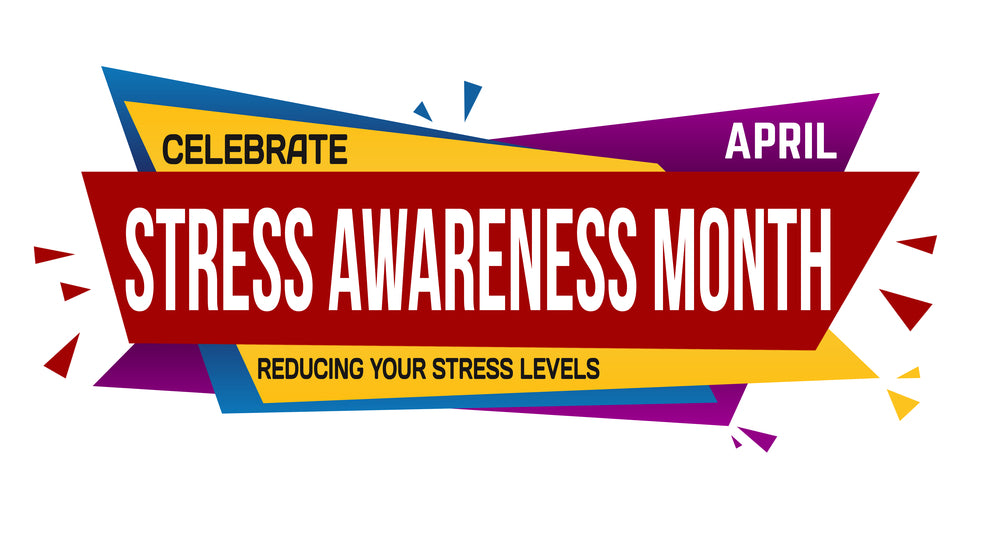April is recognized as National Stress Awareness Month to bring attention to the negative impact of stress.
Stress can be defined as any type of change that causes physical, emotional, or psychological strain. Stress is your body's response to anything that requires attention or action. Per the National Institutes of Health "Managing stress is an essential component of a healthy lifestyle. Knowing how to manage stress can improve mental and physical well-being as well as minimizing health-related issues."
What does Stress do to your Health?
Stress affects your health in these ways:
- It lowers your immunity.
- It can deplete your body of the nutrition that it needs.
- It creates adrenal exhaustion.
The Immune System
Stress results in cortisol being pumped into your body by the adrenal glands. This is not good for your immune system and can lower your immunity.
Nutritional Deficiencies
Stress can even create more stress. Stress forces the body to use up large quantities of nutrients which in turn can lead to nutritional deficiencies.
Nutrients are chemical compounds (such as protein, fat, carbohydrate, vitamin, or mineral) contained in foods.
A nutrient deficiency is basically a nutrient that your body does not have enough of to function properly.
If you forgot to put oil in your car, even if the motor was in good working condition, the engine would seize up and stop working. This same principle holds true with the functioning of your body. Each nutrient deficiency can create a multitude of problems for different organs and glands in the body.
Causes of Physical Stress
Toxins from the air you breathe, the water you drink, and in the foods you eat, can create stress that depletes the body of many nutrients that it needs. For example, a lack of B vitamins and magnesium can create stress to your body. The lower your magnesium level is, the more reactive to stress you become. A lack of calcium can cause heart palpitations and a lack of potassium can cause irregular heartbeat. Heart palpitations and irregular heartbeat alone can cause the person experiencing them a great deal of stress.
Chronic Stress and Adrenals
The adrenal glands are the “stress glands” as they produce hormones in response to stress and you do not want the adrenals imbalanced and overproducing the stress hormone cortisol. This creates adrenal exhaustion which can cause anxiety (worry), frequent feelings of stress and difficulty handling stress.
Adrenal exhaustion can lead to unhealthy behaviors in order to produce energy. These behaviors can be smoking, alcohol use, poor diets (wanting that quick rise in blood sugar by eating sweets or going to a fast food restaurant), all of which cause more nutritional deficiencies.
Natural Remedies
There are many actions you can take the reduce the amount of stress you experience, but one of the most fundamental actions is to eat a balanced, healthy diet, one that provides your body with a wide range of nutrient-dense foods, so your body has the nutrition it needs to function at its optimal level.
It's good to know that the adrenals need salt, healthy fats, vitamin C and copper to run effectively.
Natural plant remedies can help reduce the effects of stress. They help to reduce the amount of cortisol produced in response to stress, which can help reduce the effects of stress on your body.
They can be taken in a natural supplement. Some of the best are:
- Valerian root
- Passionflower
- Lemon balm
- Holy basil
- Ashwagandha.
These natural remedies can be found at most health food stores. If you are considering taking one, it is important to speak with your healthcare provider first to ensure it is safe for you.
So, eat a balanced, healthy diet and make sure you eliminate any deficiency that will make stress increase and if more help is needed you might want to try a natural plant remedy.

